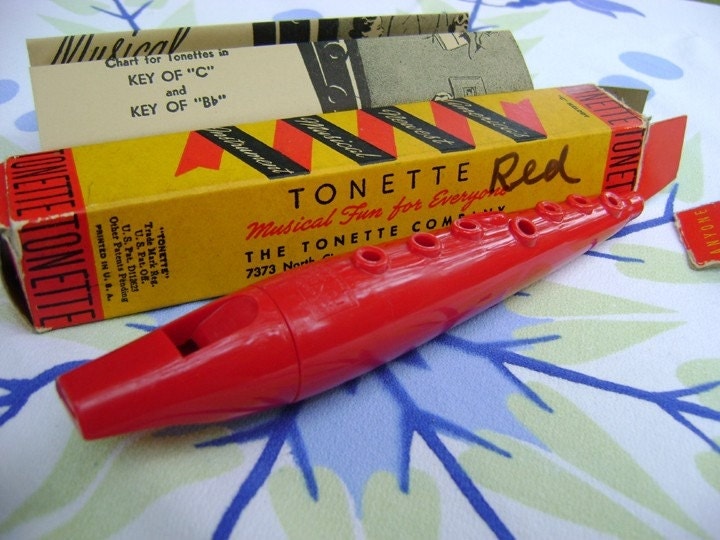TONETTE
INFORMATION TAKEN FROM: http://www.music.vt.edu/musicdictionary/textt/Tonette.html
| CLASSIFICATION: | ||
| Aerophone | ||
| HISTORY: | ||
| This instrument was created in 1938 and used in American elementary music education as a pre-band instrument. This allowed young children to play a simple instrument and learn musical notation. It also allowed the students not only to play simple melodies, either alone or as a group, it allowed groups to perform simple harmonies along with the melodies and begin to experience performing as an ensemble. The Tonette has largely been superseded, through the efforts of Music Educators, by the much more musically accurate recorder family of instruments. It is also known as a song flute. Although this instrument is considered a toy by most, (or at best a training instrument) it was featured in Peter Schickele's Gross Concerto under his pen name of P. D. Q. Bach. | ||
| PHYSICAL DESCRIPTION: | ||
| A small black plastic whistle-type instrument that is end-blown. It has seven finger holes on the front of the instrument and a thumb hole on the back. The small number of finger holes with a limited range and the fact that is is easy to achieve a good sound makes this instrument ideal for young children. | ||
| SOUND PROPERTIES: | ||
| The Tonette has a very pleasant sound, not unlike a recorder or flute. Overblowing is possible to extend the range, but that sound is not entirely pleasing when performed by a novice and somewhat difficult to control. | ||
| RANGE: | ||
| The range of the Tonette is just over an octave from middle C (c1) to d2. Also called a song flute | ||
 |
| TONETTE RANGE |















